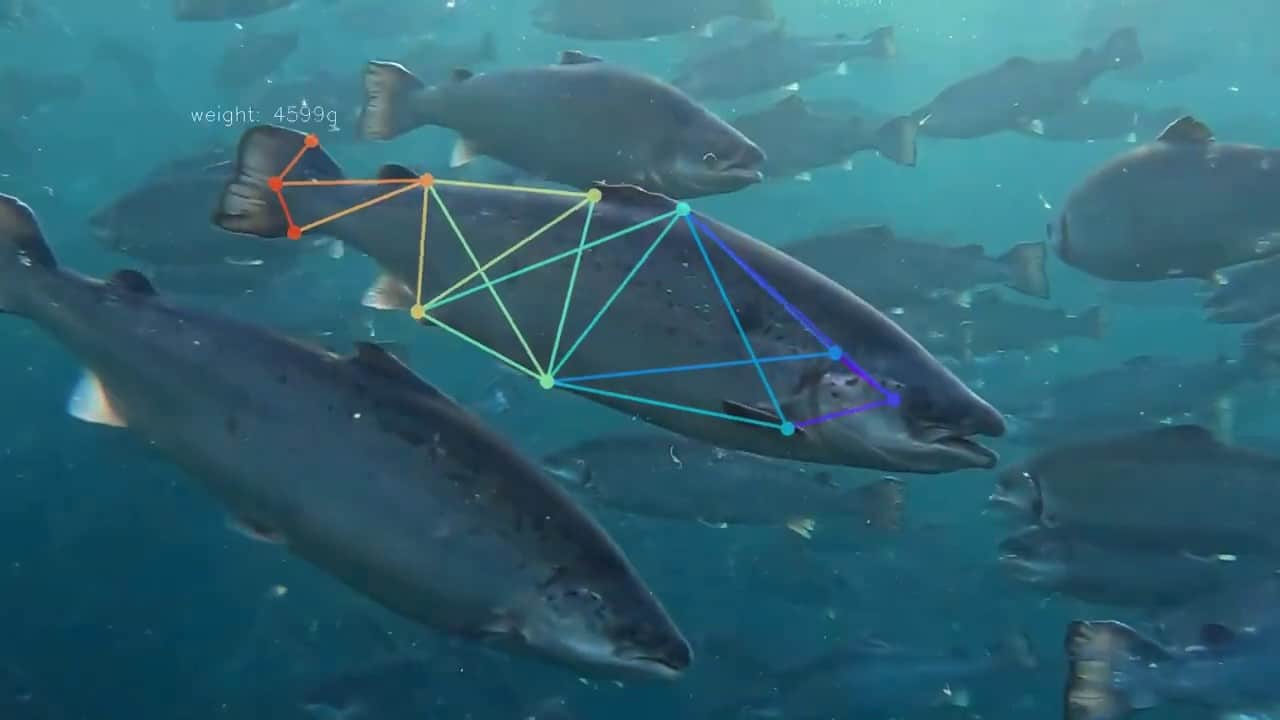🇮🇸 Teach a Computer to Fish: The Rise of AI in Aquaculture and Fishing

By Elías Thorsson
Give a man a fish and you feed him for a day, teach a man to fish and you feed him for a lifetime. But show an Artificial Intelligence (AI) a fish and it can tell you its age, origin, how its condition will impact price, and what you can do to maximize its profitability.
In recent decades, a number of exciting hi-tech businesses and startups have sprung up around the Icelandic fishing industry, and among the more exciting developments in the field is the emergence of AI.
Marel is Iceland’s biggest food processing company with around 6,000 employees in around 30 countries. It was founded in 1983 by a group of young engineers who noticed that the fishing industry needed a reliable machine to weigh fish. Back then computers were beginning their conquest of all industries and forty years later we are knocking on the next door in computer utilization.

Ólafur Karl Sigurðarson, Executive Vice President of Marel Fish, has been involved in steering Marel into the AI age and he explains that it has already proven itself an apt pupil capable of improving profitability and efficiency.
“To give an example, we have been using AI for image analysis to very good effect. Many of the tasks once performed by humans now require computer vision to allow us to adjust processing machines to account for size, shape, etc.,” says Mr Sigurðarson.
“Another example would be the robots used to transport raw produce, these need computer vision to perform their function.”
Automation in industry pre-dates even Henry Ford and his multicolored Model-T in black, but there have always been jobs that require a person with judgment and critical thinking skills to perform. However, the emergence of AI and deep learning is causing a shift in this paradigm.
“Almost all food processing jobs that haven’t been automated already require AI. The challenge is to develop reliable and cost efficient solutions,” says Mr Sigurðarson.
“The technology is necessary for the creation of good quality control systems and to minimize the use of resources such as electricity and water.”
Maritech is one of the leading providers of software for the global fishing industry and in recent years the company has been developing a hyperspectral imaging camera that is already being used by some of Iceland’s biggest fishing companies. The camera allows us to peak beyond the scales and provides an AI with a variety of metrics that help with quality control and pricing.
“The camera provides us with images that capture spectrums not visible to the naked eye. We then teach the computer to recognize parameters that dictate quality and to recognize anomalies that can impact value. Such as worms, blood buildup, damages etc.,” explains Konráð Olavsson, Maritech’s Country Manager for Iceland.
“This information helps determine how best to process the product, but equally helps buyers determine the true value of the fish.”
The AI can quickly and reliably deliver data that turns the skills and knowledge possessed by only the most seasoned sailors and fishmongers into science. The information gathered can also help authorities determine the health of fish stocks and set fishing quotas. The technology and its applications develop day-by-day and as Olavsson explains “the opportunities seem endless.”
Despite the rich bounty of the North Atlantic surrounding Iceland, there is only so much fish that can be caught. The exporting of new technologies that service the fishing industry, however, seems almost limitless. Mr Sigurðarson says we could call Iceland a Silicon Valley of the sea and perhaps it is no coincidence that San Francisco started out as one of the US’ largest harbors.
“The industry has so many exciting projects in the works and I think it is fair to say that Iceland, Norway and the Faroe Islands have the most technologically developed fishing industries in the world. Stepping into a processing plant here is like getting onboard a spaceship compared to many other countries,” says Mr Olavsson.
With the fourth industrialization ramming into Iceland’s most valuable industry, we’ve only started to skim the surface of the opportunities that lie beneath. It doesn’t seem too far-fetched that in the near future, the entire fishing fleet will be controlled by Captain Hal-I-but.
FURTHER READING
• 🇳🇴 KSAT shares its expertise on IUU fishing detection at GLOC 2023
• 🇮🇸 Iceland fishing catch up 23%
• 🇳🇴 Probotic Secures Patent for Autonomous Fish Farm Cleaning System
• 🇳🇴 Probotic Successfully Completes Project on Biological Impact of Net Cleaning
• 🇳🇴 Brand-new industry potential in western Finnmark
• 🏴 🇺🇸 To protect orcas, federal judge orders closure of iconic Southeast Alaska troll fishery
• 🇳🇴 Fisheries: EU and Norway strengthen cooperation for sustainable fishing in the Northeast Arctic
• 🇮🇸 🇬🇧 A Taste of Seaweed
Elías Thorsson is a journalist, writer, and marketing specialist with extensive experience covering business and technology affairs in Iceland.